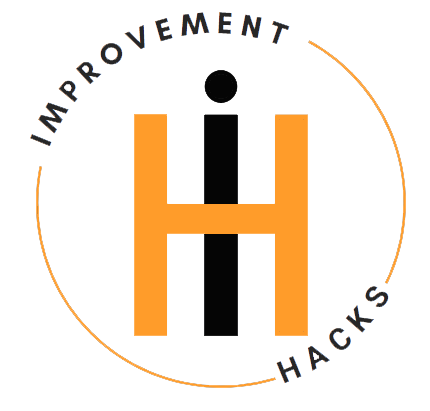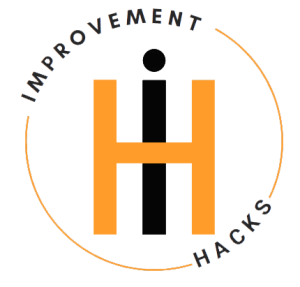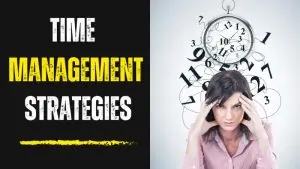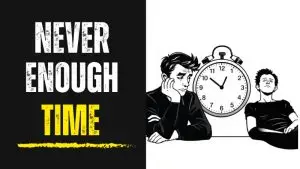Don’t let distractions steal your valuable time!
Managing time effectively is an essential skill, but without focus, even the best schedules and to-do lists won’t help.
With the rapid advancement of today’s technology, staying on track has become more challenging than ever.
Chances are you might be reading this on your smartphone right now.
And once you’re done (because this is important stuff, right?), you’ll probably open another app, then another, and before you know it, an hour has just shot by.
Sure, you might have learned that flamingos can live up to 50 years or that some fruit flies have a high tolerance to alcohol, but come on, what about your productivity?
Distractions are all over the place!
Loads of us believe we can multitask, handling distractions while working, but in reality, this only divides our attention and ends up getting us poor results.
Notifications and alerts are constantly competing for our focus.
And while we can’t eliminate distractions completely, we can learn how to avoid distractions effectively and take control of our time.
Common Distractions and How to Overcome Them
Wireless Personal Devices
It’s so easy to get caught up in the endless stream of notifications.
Smartphones and smartwatches are designed to be addictive.
They provide instant gratification, which our brains love.
The best way to avoid these distractions is to turn your devices off (yep, you read that right!) or just switch them to airplane mode.
If that’s not an option, try the “out of sight, out of mind” method, tuck your phone away in a drawer, purse, or pocket with the volume muted.
Another effective strategy is to set specific times during the day to check your phone.
For example, allow yourself five-minute breaks every hour to check messages, but make sure you stick to your schedule.
Social Media
A quick peek at our social media can turn into hours of wasted time.
Admittedly social media has changed the way we communicate, but it’s also a major time waster.
It’s incredibly easy to lose hours scrolling through feeds without even realizing it.
To fight this, log out of your accounts and disable notifications.
Consider using time-tracking apps to see how much time you actually spend on social media.
Make sure “YOU” control your online presence instead of letting it control you!
Another helpful tip is to unfollow or mute accounts that aren’t adding value to your life, keeping only content that inspires and educates you.
Email Overload
Your inbox is always filling up.
Email can be a major productivity killer, especially when notifications keep popping up.
With work, personal, and school accounts, the constant influx of emails can quickly become overwhelming.
To stay focused, set a specific time each day to check and respond to emails.
Keep your personal email separate from your work schedule to stay on track.
Creating filters and labels for emails can help you prioritize important messages and avoid spending too much time on less urgent ones.
Interruptions from Others
People are always going to need your attention.
In any environment, whether at work, school, or home, there will always be interruptions.
Whether it’s a co-worker dropping by for a chat or a family member asking for help, these distractions eventually add up.
Set clear boundaries by using a “Do Not Disturb” signal.
Close your office door if you have one, put on noise cancelling headphones, or simply let others know you need uninterrupted time to work.
You can also schedule specific times to be available for questions or conversations, making it easier to focus on deep work.
Clutter and Disorganization
A cluttered space leads to a cluttered mind.
A messy environment makes it hard to concentrate.
When papers, sticky notes, and random items clutter your space, your mind feels cluttered too.
Take a few minutes to declutter your workspace.
A clean, organized environment will help you focus better and get more done.
Consider adopting a minimalistic approach to your workspace by only keeping items that you use frequently within your reach.
Unnecessary Meetings
Not every meeting is essential.
Meetings can consume valuable time, especially when they aren’t really essential.
If your presence isn’t crucial, consider declining the invite or asking a colleague to provide a summary.
When meetings are unavoidable, make sure they stay on topic and don’t drag on unnecessarily.
Suggesting alternatives like email updates or brief video recordings can also reduce the need for lengthy meetings.
Anxiety and Stress
Your mind can race with worries and fears.
Stress and anxiety are common distractions that affect our focus and productivity.
Whether it’s a looming deadline or personal issues, these feelings can make it hard to concentrate.
To combat stress, try a bit of meditation, take a short walk outside, or talk things out with someone you trust.
Avoid caffeine during stressful times as it has been known to make anxiety worse for some people.
Developing a daily relaxation routine, such as journaling or deep breathing exercises, can help you manage stress more effectively.
Hunger and Dehydration
Your body needs fuel to function.
Skipping meals and ignoring hunger can hurt your ability to focus.
Your brain needs proper fuel to function efficiently.
Stay hydrated and keep a few healthy snacks on hand to maintain your energy levels throughout the day.
Planning your meals and having nutritious snacks nearby can help to stop you from reaching for those unhealthy, energy draining options.
Take Control of Your Focus
While it’s impossible to eliminate all distractions, learning how to avoid them is key to staying productive.
Look at distractions as challenges to overcome, not excuses to lose focus.
Your goals are worth the effort.
Take charge of your time and don’t let distractions stand in the way of your success!
Developing self-discipline and regularly reviewing your progress will help you stay on track and achieve more in your personal and professional life.






